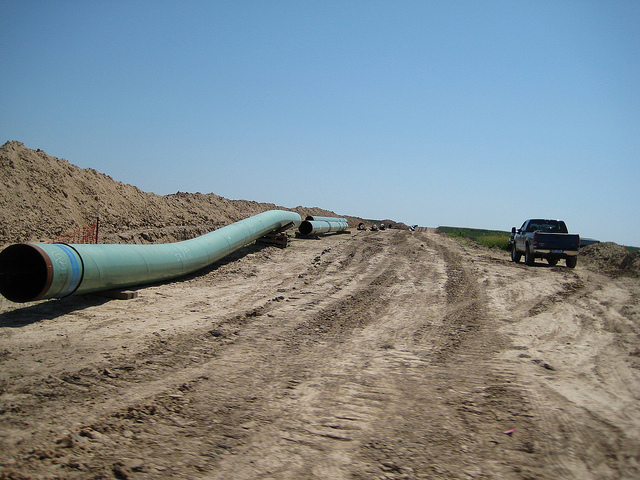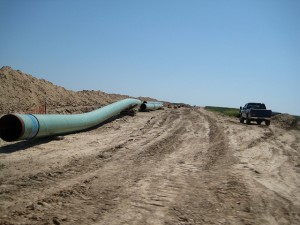
The Keystone XL Pipeline in Nebraska, a state where environmental concern over the proposed pathway forced planners to reroute the pipeline away from ecologically sensitive areas.
shannonpatrick17 / flickr


The Keystone XL Pipeline in Nebraska, a state where environmental concern over the proposed pathway forced planners to reroute the pipeline away from ecologically sensitive areas.
shannonpatrick17 / flickr

shannonpatrick17 / flickr
The Keystone XL Pipeline in Nebraska, a state where environmental concern over the proposed pathway forced planners to reroute the pipeline away from ecologically sensitive areas.
Executives and experts with oil and natural gas companies met in Oklahoma City earlier this week to talk shop.
And while the desire for more pipelines dominated much of the discussion — Keystone XL is just the beginning, apparently — the Journal Record‘s Sarah Terry-Cobo reports that maintaining the public trust over environmental issues was a big conversation among industry insiders:
“We have to be responsive, otherwise we have to run the risk of losing that social license to operate,” William Whitsitt, executive vice president of Devon Energy Corp., said to a crowd of about 50 people at the Renaissance Hotel.
The Keystone XL Pipeline and other pipeline projects have run into opposition in Oklahoma and other states. Here, pipelines that don’t cross international boundaries or federally protected lands are largely unregulated until construction has started, or there’s an environmental problem — like a leak.
No state or federal agency has oversight of intrastate pipeline projects in Oklahoma — like Glass Mountain near Enid — when they’re in the route-planning stage. And routes are often the most important and controversial parts of pipeline projects.
It’s in energy companies’ best interests to be mindful that they’re operating in people’s “backyards,” Continental Resources Vice Chairman of Strategic Growth Initiatives Jeff Hume told members of the Southern States Energy Board, the Journal reports:
“The public scrutiny we’re facing today, you need to embrace and welcome it,” Hume said.